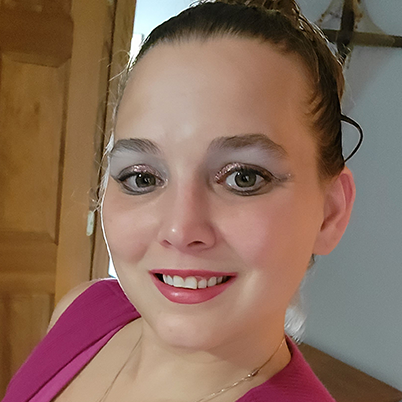
Sometimes I am faced with the question of, do I buy food for my kids, do I get gas in the car, or do I take my medication? There are times when I don’t take my medication, because I have to feed my kids, and I have to get to work… I am a research scientist, I am in the field I want to be in, I don’t want to stop working.
In early 2020, Laura Burgstaler, a research scientist at the University of Minnesota began getting sick, and she would stay sick for weeks and months without improvement and without a pinpointable cause. After three years of struggle, seeing multiple doctors and specialists and fighting for her health, Laura finally received a diagnosis of an autoimmune disease. However, despite having name(s) for her condition, as well as supposed treatments, Laura has not experienced any relief or improvement in her quality of life.
“I have four children, they have had to watch their mother go from being incredibly active to barely able to get out of bed.” After multiple years “having issues getting any answers from the health care system” Laura now has to see at least one doctor every week, sometimes more than one, on a constant basis.
This yields immense frustration when the systems and doctors do not work together, “I see so many different specialists, they don’t talk to each other, and they just add on” Laura says. And if managing the never-ending roundtable of medical professionals she has to see regularly just to keep healthy isn’t enough on her plate, Laura also has a monthly budget to contend with. Her regular doctor’s appointments always come with a co-pay, and her prescriptions total upwards of $300 per month.
Like so many other Americans, Laura sometimes has to make a choice of what essentials to buy; with prescription drug prices so high, and often not covered by insurance, there isn’t enough money to go around. “Sometimes I am faced with the question of, do I buy food for my kids, do I get gas in the car, or do I take my medication? There are times when I don’t take my medication, because I have to feed my kids, and I have to get to work… I am a research scientist, I am in the field I want to be in, I don’t want to stop working.” Unfortunately, due to her condition and the inability of doctors to provide her with consistent relief or pain management, Laura had to give up her dream job and take a different position.
Through her current insurance provider she has had to appeal many times to get prescriptions and procedures covered. This process can take more than a year and sometimes has nonsensical results. For example, she appealed when Linzess was not covered and would cost her $500 per month, and the alternative drug suggested for her also was not covered. At the end of the appeal, the insurer determined that Linzest rather than the alternative was better for her — but the insurers still declined to cover it. In another similar case, her IVIG infusions (Intravenous Immunoglobulin Therapy, for people with weak immune systems) took two years to get approval with over 10 appeals to the insurance company and three doctors appeals as well. Laura sometimes feels that she is being “sent on a wild goose chase” with insurers telling her to take one medication that is covered, then it will be denied due to her specific use case, they will refer her to another medication, which was one she was denied in the first place, and then the cycle continues.
She is also concerned that her insurers’ local provider network does not have expertise in her rare diseases. She would like to travel to a specialty center in New York or Cleveland, but the expenses to travel there while caring for her family are prohibitive.
Laura said that being a person with an autoimmune condition is like entering the health care system to be “treated as a number. The doctors just want you to come in for a couple of minutes, and then they say goodbye.” Laura does not have a case manager specifically provided to her to assist, or, if she does, they are not consistent nor timely. Fortunately, over the past five years, Laura has had the same primary care physician who has been with her through diagnoses and tests, and has advocated with specialists on her behalf. Even with that person in her corner, Laura is still sometimes having to fight to be taken seriously and treated well.
Laura is not a number, or a grouping of symptoms, and she is more than any diagnosis, she is a scientist, a mother, and she deserves care and respect from the U.S. healthcare system.
Laura lent her voice to #SincerelyUs, a new social media storytelling campaign that brings to light the real-life struggles of individuals and families within the U.S. health care system. Learn more about #SincerelyUs.
Add your voice to help us continue to push for the best health and health care for all.
SHARE YOUR STORY